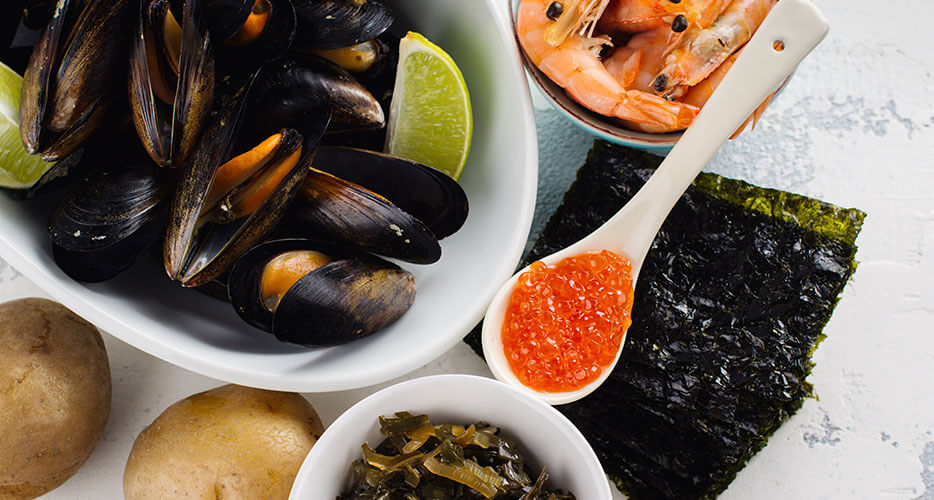
Iodine: what functions does this mineral play for the well-being of adults and children, increasingly at the center of important preventive public health interventions?
Misura's interview with Dr. Andrea Del Seppia
Let's talk about the topic with our nutritionist, Dr. Andrea Del Seppia.
Dr. Del Seppia, let's start from the beginning: what is iodine and what is it used for...
Iodine is an element that accumulates mainly in the body at the level of the thyroid, an endocrine gland (that is a tissue specialized in the production of hormones) placed in the front part of the neck, whose shape resembles that of a butterfly. This mineral is an essential micronutrient, which is a substance that we are unable to produce ourselves and which must be taken from food sources.
Iodine is a constituent of thyroid hormones, which perform various functions: they regulate the development of our organs already from prenatal life; they influence the metabolism of our cells, intervening in the regulation of basal metabolism (which consists of the amount of energy expenditure we consume at rest), in the glucose metabolism (ie carbohydrates) and in that of proteins and lipids. Furthermore, thyroid hormones influence the regulation of body temperature and have effects on bone mineralization.
What does a lack of food entail?
The intake of iodine with the diet is essential to ensure proper functioning of the thyroid gland since this mineral is essential for the synthesis of the hormones it produces: if the intake of iodine is insufficient, the thyroid will not be able to build enough thyroid hormones.
The nutritional deficiency of this trace element determines the development of problems that vary according to the age in which it arises: in children an inadequate intake of iodine is even more dangerous than in adults because the substances produced by the thyroid have a central role in the development of the fetus and newborn, particularly at the level of the nervous and skeletal system.
What is the iodine requirement at various stages of life?
The right nutritional intake of iodine is essential to ensure that growth and development take place correctly. The adequate intake of iodine in the adult is 150 micrograms per day (SINU, 2014). In some cases the iodine requirement is higher: during pregnancy and lactation it rises to 200 micrograms per day and, proportionately, even children have a higher requirement than adults. In the feeding of the infant, the iodine comes directly from the mother's milk, provided that the mother takes a sufficient quantity.
What are the food sources that contain it?
The iodine richest foods are the marine ones, which absorb iodine from the waters of the sea: algae (kelp, fucus, kombu), sea fish (cod and tuna), crustaceans (scampi and shrimp) and molluscs (mussels and clams) . Depending on the characteristics of the soil in which they are grown and even in smaller quantities, iodine is also contained in sources of vegetable origin, in particular in cabbages, rocket salad and turnips.
In the case of plants, in fact, the concentrations of this micronutrient depend on the soil and on the amount of rainfall. The flours obtained from whole grains, compared to the refined ones, generally have a higher content of trace elements.
Even milk and yogurt are good sources of iodine (BDA, 2016). We must also know that the iodine content changes with cooking: the boiling, in particular, reduces its content. Unfortunately, the intake of this mineral through these foods is often not enough to cover our needs.

Are there any so-called "false myths" about iodine?
Although the sea air is rich in it, its absorption has negligible effects (Ministry of Health, 2005), therefore it is not sufficient to satisfy our food needs as the common belief would like. The real benefit of going to seaside resorts is to be able to easily find freshly caught fish, containing abundant quotas of this mineral, and to take long walks that improve our general well-being and increase our levels of physical activity.
Read the article on Misura® website
Read the article on Misura® Facebook official page
Link to Dr. Andrea Del Seppia page on the official Misura® website
Misura® is a registered trademark of Colussi S.p.A. The material reported in this article is the property of Colussi, who authorized its publication.
